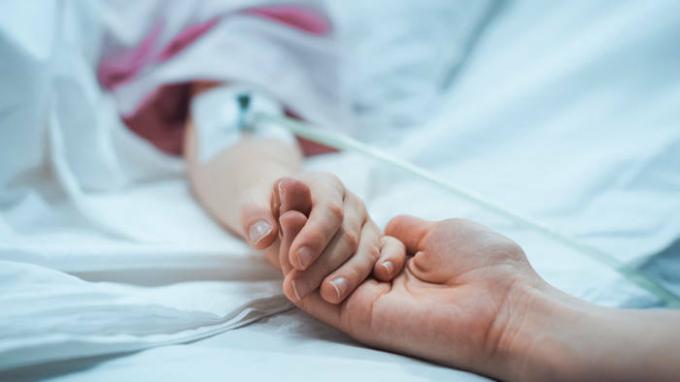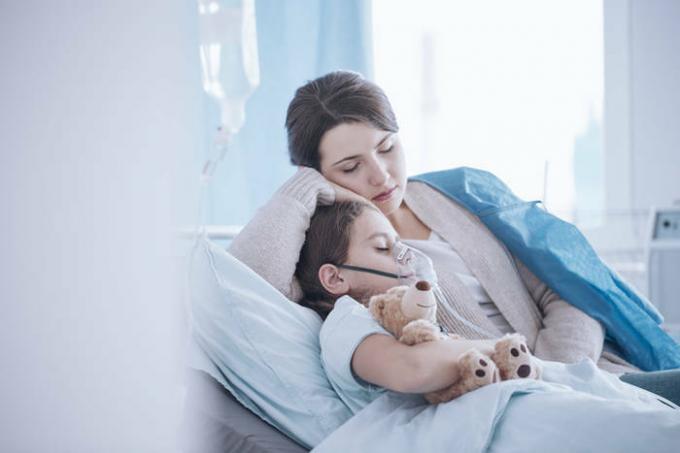No one wants to be in the hospital, much less send a child there. But there are cases in which hospitalization is required.
However, this right should not be abused. Still, there is no benefit for doctors to send you and your child to a hospital - there are already a lot of patients there at any time of the year.
But there are cases when refusal to hospitalize can threaten the life and health of the child. It is important to understand in what situations you still have to go to the hospital.

1. Temperature 39-40 degrees
Some adults believe that even such a high temperature in a child is a common thing, it can go away on its own or with the help of usual medicines. But you shouldn't blindly trust such advisors.
Temperature can be caused not only by ARVI, but also by allergies, poisoning, Quincke's edema, a lot of viral and bacterial infections. If the antipyretic agent works weakly or does not work at all, you need medical help.Otherwise, there may be complications in the heart, nervous system, loss of consciousness, etc.
2. Labored breathing
This condition may be temporary, but the lack of oxygen leads to serious consequences: suffocation, loss of consciousness. Here parents cannot cope on their own. In case of breathing problems, calling an ambulance is mandatory, and often hospitalization.
3. Poisoning
Poisoning can be food, chemical, medication, or inhalation of toxic fumes. To independently diagnose and treat it in a child is dangerous to his life, the damage can be latent.
In the hospital, the child will receive treatment that will eliminate the cause of the poisoning, taking into account the characteristics of the child's body. In case of severe poisoning, you need to drink a lot of liquid - and the condition of the child is such that he cannot do this in any way. Very quickly, life-threatening dehydration sets in, which can only be dealt with by droppers.
4. Injuries, bleeding, burns, convulsions
In 100% of cases, the child should be examined by at least a pediatrician, who will draw up a further action plan: hospitalization or treatment at home.
It happens that parents try to treat the child on their own so that there are no complaints from the social services and law enforcement officers due to child injuries.
But in this case, it is possible to "recuperate" before a fatal outcome - and there can be no worse option.
In such cases, it is also worth knowing the rules of first aid: for example, if the child hits his head hard or back - you cannot transport it yourself, so as not to worsen the situation, you need to call an ambulance help.
You will also be interested to read:
- 7 non-obvious things kids can choke on
- Mushrooms in a child's diet: at what age to give and why are they dangerous
- Items in the children's first aid kit that need to be urgently disposed of

